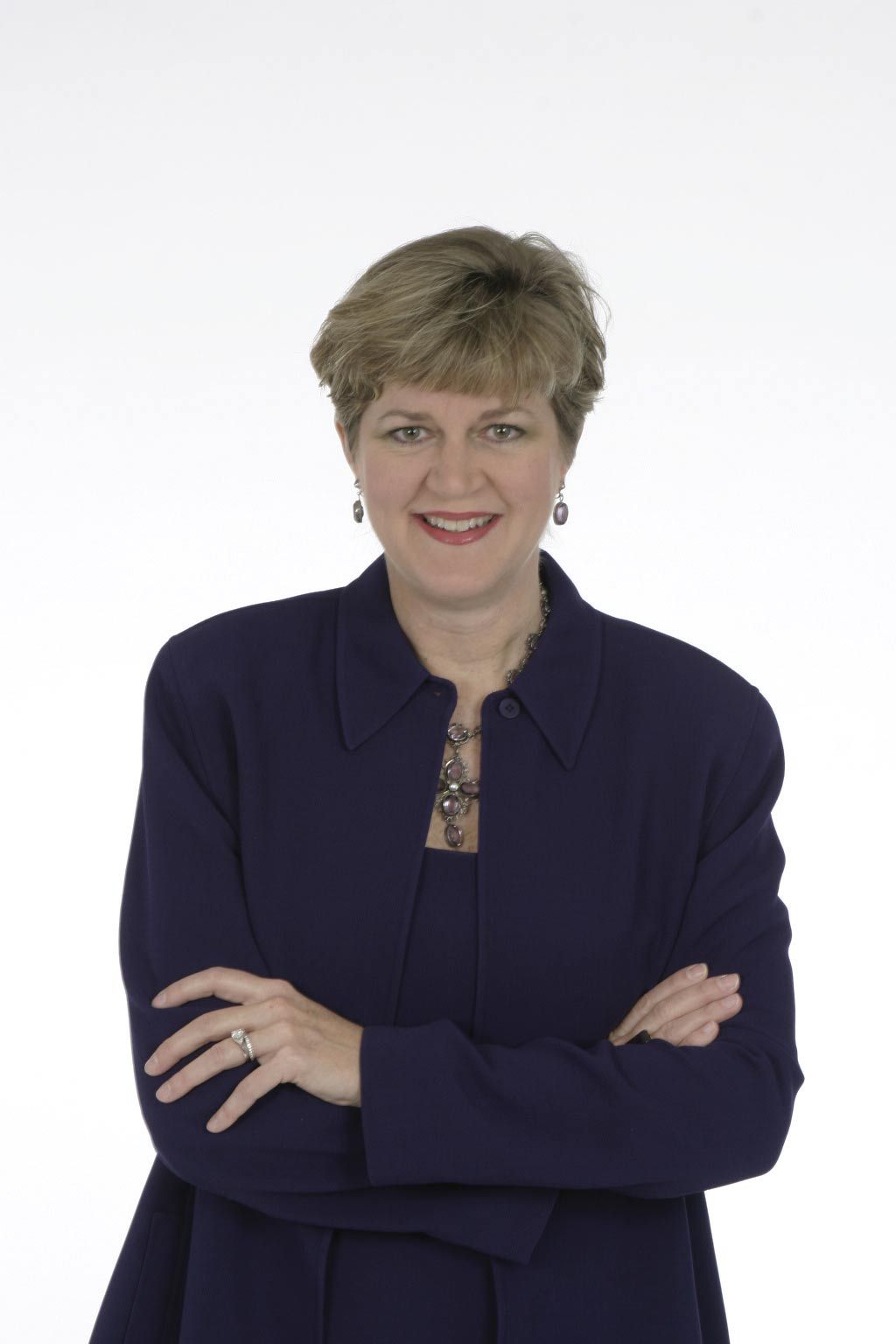
Charles Prestwood was a hard-working blue-collar employee who spent 33 years of his adult life working in the gas industry. For the last 15 years of his career, he was a plant operations worker for a company called Enron. He made a decent salary of $65,000 a year and wisely invested a percentage of his income in a retirement account. By the time he retired, he had built a comfortable nest egg of $1.3 million, more than enough to live on for the rest of his life. There was, however, one problem. Nearly all of his investments were tied up in just one company and that was his former employer, Enron.
In late 2001 the news was made public that many top executives at Enron were corrupt and dishonest. Their years of elaborate lies and deception led to one of the largest corporate scandals the world has ever seen. As a result, the company stock fell from a high of $90 a share in December 2000 to less than 70 cents a share just 11 months later. The full impact of this dramatic drop was felt by thousands of Enron employees and retirees, including Charles Prestwood. “I can tell you, without pulling punches, something stinks here,” he said during a Congressional hearing called to investigate the Enron debacle. “I lost everything I had.” The nest egg he had worked so hard to build was now nearly wiped out.
When Enron filed for the largest bankruptcy in history on December 2, 2001, many Americans suffered enormously. Almost 5,000 employees were fired without warning. To make matters worse, the company promptly canceled their medical insurance. Without a steady paycheck, many workers could not afford to pay their medical bills. Some canceled surgeries or could no longer afford to take their prescription drugs. In less than a year, thousands of people lost their income, their health insurance, and their retirement funds. So, what happened? How did such a large and respected company self-destruct so quickly? The simple answer is dishonesty and greed. It took the actions of one courageous employee, Sherron Watkins, to expose this widespread fraud to the rest of the business world.
Initially Kenneth Lay, Enron’s chief executive officer, had a superb business plan. He hired the smartest, most energetic people and rewarded them with generous salaries and bonuses. Many people got rich working at Enron, which was named by Fortune magazine as one of the “Best 100 Companies to Work for in America.” Fortune also named Enron America’s most innovative company for five consecutive years. In 1996 Business Week included Lay in its list of Top 25 Managers of the Year. On paper anyway, Enron was worth billions of dollars, and the company was ranked seventh on the Fortune 500 list.
The corporate culture at Enron, however, was unhealthy. There was immense pressure on employees to close profitable deals at any cost. The motto of one of the executives was “Never say ‘no’ to a deal.” As long as employees produced results, they were not questioned about their methods. CEO Lay even wrote a chapter for a best-selling book in which he emphasized that “rule breakers get to the future first.” Enron employees got the message that it was okay to put ethics aside in pursuit of profit. And, sadly, many of them did.
In order to inflate its profits and please industry analysts, Enron began to “cook the books” by using questionable accounting practices. For example, if the company met its projected earnings in a given year, executives would transfer some of the earnings to the next year to cover any unexpected losses. On one occasion, earnings of $70 million disappeared, only to reappear in the next fiscal period. Executives also began inflating the cost of the company’s assets. Questionable accounting practices were used routinely but not questioned as long as it was good for business. Enron employees even developed a name for these unethical deals, calling them “Jasons” after the main character in the Friday the 13th horror films.
 For a while, it seemed as if no one at Enron had the courage to protest the widespread corruption at the company. Nobody, that is, except Sherron Watkins. As a vice president at Enron, Watkins was not directly involved in the wrongdoing, but she was able to uncover the truth. Armed with incriminating information, she made a bold decision to expose the illegal activity at Enron. She became a “whistleblower.” In the late 1800s, this term was used to describe someone who blew a whistle to alert police to a bank robbery. Watkins did not inform the police of what she uncovered, but she did take her concerns straight to the top. She wrote letters and met personally with Lay, which triggered an investigation into the corruption. Watkins demanded honesty from her employer. For that and for the courage of her convictions, Time honored her as Person of the Year for 2002.
For a while, it seemed as if no one at Enron had the courage to protest the widespread corruption at the company. Nobody, that is, except Sherron Watkins. As a vice president at Enron, Watkins was not directly involved in the wrongdoing, but she was able to uncover the truth. Armed with incriminating information, she made a bold decision to expose the illegal activity at Enron. She became a “whistleblower.” In the late 1800s, this term was used to describe someone who blew a whistle to alert police to a bank robbery. Watkins did not inform the police of what she uncovered, but she did take her concerns straight to the top. She wrote letters and met personally with Lay, which triggered an investigation into the corruption. Watkins demanded honesty from her employer. For that and for the courage of her convictions, Time honored her as Person of the Year for 2002.
Before Sherron Watkins found herself on the cover of Time, she was just an average citizen like anyone else. She grew up in the small town of Tomball, Texas. Except for the drilling rigs that drilled for oil within the city limits, Tomball was an unremarkable small town. Sherron’s uncle owned the local supermarket, and her cousin managed the funeral home. Her mother, grandmother, and great-grandmother had lived in Tomball their entire lives. Sherron’s parents divorced when she was an adolescent, and she lived with her mother and sister in a modest two-bedroom house. Religion was a large part of Sherron’s daily life. She was active in Salem Lutheran Church and attended a Lutheran school before transferring to Tomball High School. She was an excellent student and a member of the National Honor Society. For extra money, she worked as a cashier at her uncle’s supermarket.
Sherron wasn’t just raised in a small town—she had small-town values, too. She understood the value of hard work, was loyal to her family and friends, and understood that it was important to respect authority figures. Above all else, she knew the difference between right and wrong. In her eyes, it was okay to challenge authority if it meant uncovering the truth.
When Sherron was in eighth grade, she had a significant experience that would prepare her for her role at Enron many years later. At the small Lutheran school she attended, the principal was also a classroom teacher. Frequently, he shirked his teaching duties and did not show up to class. Sherron recognized that students were being shortchanged by this situation, and she told her uncles about it. Because they were elders in the Lutheran church, they were in a position to address the situation, and not long after, the teacher left the school. Sherron learned that questioning authority by reporting wrongdoing could result in positive change.
A few years after graduation, Watkins landed a job at Enron, married a fellow Texan, and gave birth to a daughter, Marion. She was successful at Enron and was promoted to vice president. Everything in her life was going well, until she began to uncover the unethical accounting practices at Enron. She was faced with a number of real-life ethical dilemmas that would prove to have dire consequences for her and thousands of others.
 On paper, it is easy to know right from wrong. In the real world, however, things are often more complicated. In Watkins’ situation, the crimes she uncovered were being committed by people who wielded a lot of power and could fire her if they chose to. Losing her job would put her family’s well-being in jeopardy. However, if she did nothing and let the situation continue, she could be considered guilty by association. Watkins knew that her conscience would not let her ignore the situation. In the end, Watkins was not the only person who knew about the fraud at Enron, but she was the only person to come forward and report it.
On paper, it is easy to know right from wrong. In the real world, however, things are often more complicated. In Watkins’ situation, the crimes she uncovered were being committed by people who wielded a lot of power and could fire her if they chose to. Losing her job would put her family’s well-being in jeopardy. However, if she did nothing and let the situation continue, she could be considered guilty by association. Watkins knew that her conscience would not let her ignore the situation. In the end, Watkins was not the only person who knew about the fraud at Enron, but she was the only person to come forward and report it.
In June 2000, Watkins went to work for Enron Broadband Services. This department was supposed to give Americans a better, faster Internet and was touted as the hottest new initiative at Enron. Broadband Services had just teamed up with Blockbuster to provide movies over the Internet via home computers. The company projected that Broadband would produce revenues of $54 billion in 2000 and $280 billion in 2001. Analysts on Wall Street bought the hype hook, line, and sinker. Enron stock soared as a result—increasing 25 percent in one day. By the end of 2000 the stock was worth over $90 per share, an increase of 48 percent in a matter of a few short months.
There were, however, a few problems with this success story. The company was spending millions and millions of dollars, but Broadband was generating very little revenue in return. In fact, by the end of 2000, Broadband had 900 employees, yet only 300 customers had signed up for the service. Furthermore, almost all of the 900 employees had spent their careers in the energy sector and did not have the necessary qualifications to be working for an Internet provider. Soon it became apparent that virtually no one knew what they were doing. As a seasoned professional, Watkins realized she had made a big mistake by joining the department.
Even though Broadband’s losses began to mount, Enron’s annual report did not reflect these losses. Watkins wondered how that could be. After doing some investigating on her own, Watkins discovered that Enron was part of “the worst accounting fraud I’ve ever seen.” Numbers were being manipulated, losses were being disguised, and people were covering it up. Instead of reporting these staggering losses, Enron reported $425 million in earnings for the first three months of 2001. Watkins knew something was wrong. Senior executives were selling their own stock in the company as fast as they could. One executive personally made over $33 million from selling stock in a span of just eight months. A Wall Street analyst later said that Enron was flunking the smell test—the numbers just did not add up.
Because Watkins had a master’s degree in accounting, she was able to figure out who was behind the corrupt practices at Enron and who was covering them up. She decided to blow the whistle on those involved. She initially wrote a letter to CEO Ken Lay. She believed that if he knew what she had uncovered, he would remedy the situation and save the company. She was sure that he would do the right thing. In her letter, she laid out the evidence and warned him, “I am incredibly nervous that we will implode in a wave of accounting scandals.” She wanted assurances that he would investigate her findings and make appropriate changes. Lay responded by asking a few top executives to look into the allegations, and in return, they told him there was nothing to worry about.
Watkins became more determined than ever to stop the fraud at Enron. She set up a meeting with Lay. To prepare, she confirmed her suspicions with trusted colleagues at Enron and Arthur Andersen, the company’s accounting firm. She did her homework to ensure her facts were accurate. In the process, she also exposed herself as a whistleblower. Being a whistleblower is a lot like being a tattle-tale—and no one likes a tattle-tale. Texas law provided no protection for whistleblowers, meaning that Watkins could be fired very easily. Still, she wanted to come forward because she was convinced that it was the right thing to do. According to her mother, “[Sherron] knew she had to say something. But all along, she never imagined that she was going to be the only one.” Jessica Uhl, a coworker, praised Watkins’ courage, saying, “She had the sense of conviction to do what she did, and the ability to articulate what needed to be said.”
Watkins met with Lay, presenting the facts as best she could. She wrote a second, longer letter that chronicled all the irregularities occurring at Enron. She even proposed specific steps for Enron to follow if the company hoped to get out of this mess. She advised the company executives to come clean about Enron’s corrupt accounting practices and make assurances that this type of unethical behavior would never occur again. She noted in her letter that these steps would have severe consequences for the company, but complete honesty was the only plausible way to save the business. When the meeting ended, Watkins felt relieved and proud at the same time. She said, “There was a feeling that I had done the hardest thing in my life, but I had carried the torch and dropped it off.”
Lay immediately confronted the key person Watkins implicated in the scandal. After hearing the allegations, the man demanded that Watkins be fired immediately. However, Lay would not allow it. In fact, Lay was so astonished by this reaction that he launched a full-blown investigation. Watkins was sure that Lay would take positive steps to help Enron regain the trust of the American people. To her surprise, he continued to hide the truth. In a speech in September 2001, Lay said, “Our third quarter is looking great. We are continuing to have strong growth in our businesses.” He even tried to recruit new investors, saying, “My personal belief is that Enron stock is an incredible bargain at current prices.” He made this statement about the same stock that he was selling as fast as he could—and making millions of dollars in the process.
Nobody knows whether Enron would have been able to survive if the company had followed Watkins’ recommendation to tell the truth. The top executives continued to lie, and once their lies were exposed, no one trusted them. Without trust, Enron had zero credibility. Business partners, investors, and banks refused to do business with the company. Enron executives were charged with hundreds of counts of fraud. As a result, Enron declared bankruptcy, thousands of people lost their jobs, and employee retirement accounts were decimated.
 When the government launched an investigation of Enron to figure out what went wrong, only one person received praise from members of the U.S. Congress. Representative Cliff Stearns had this to say to Sherron Watkins: “I believe that employees such as yourself, in no small measure, contribute to the integrity of our commercial system by insisting that all participants play by the rules. And I think all Americans thank you for what you did.” Representative Bart Stupak recognized her courage by saying, “Many of my colleagues and I truly appreciate your brave actions…” Finally, Representative Billy Tauzin referred to Watkins as a role model for the next generation of businessmen and women. “I hope that sons and daughters of American citizens follow your example, frankly, and adopt your concept of corporate loyalty as a mantra.”
When the government launched an investigation of Enron to figure out what went wrong, only one person received praise from members of the U.S. Congress. Representative Cliff Stearns had this to say to Sherron Watkins: “I believe that employees such as yourself, in no small measure, contribute to the integrity of our commercial system by insisting that all participants play by the rules. And I think all Americans thank you for what you did.” Representative Bart Stupak recognized her courage by saying, “Many of my colleagues and I truly appreciate your brave actions…” Finally, Representative Billy Tauzin referred to Watkins as a role model for the next generation of businessmen and women. “I hope that sons and daughters of American citizens follow your example, frankly, and adopt your concept of corporate loyalty as a mantra.”
Watkins also received national awards for her honesty and courage. She was given the Scales of Justice Award by Court TV and the Women Mean Business Award from Business and Professional Women/USA. Watkins shared her Time Person of the Year award with two other honest citizens—Coleen Rowley of the FBI and Cynthia Cooper of WorldCom. The cover of the magazine read simply, “The Whistleblowers.” The article described the honesty, courage, and character exhibited by these three women. “They took huge professional and personal risks to blow the whistle on what went wrong at WorldCom, Enron and the FBI—and in so doing helped remind us what American courage and American values are all about.”
Watkins says she has some regrets. If she had to do it all over again, for example, she says she would have taken her concerns outside the company. She was naïve to believe that the top executives would do the right thing. To help other companies avoid Enron’s mistakes, Watkins has started her own consulting firm to advise businesses on ethics in the workplace. She believes that her story can serve to help others and hopes that she can be a role model for those in the business world. Because of her honesty and the courageous role she played at Enron, she is in high demand as a speaker and consultant.
Discussion Questions
- Sherron Watkins has consistentlyu been voted the least favorite role model in the book. Why do you think that’s true?
- Despite all that she did at Enron, Sherron still had regrets. What was Sherron’s biggest regret?
- Sherron was the only person who tried to do the right thing in this messed up debacle. If you had the information that she did, what would you have done? Would you have done more?
- As a result of Sherron’s courageous actions, Congress enacted a “Whistle-Blower Clause.” Guess what this clause does for employees.
- What inspires you about Sherron Watkins and what can her life to make you a better person?

it was cool i guess
This story was awesome because it talks about honesty and how it can get taken away in seconds.
This story was boringggggg >:-/
It was OKAY
it was okay i guess.
this shows you should always do the right thing